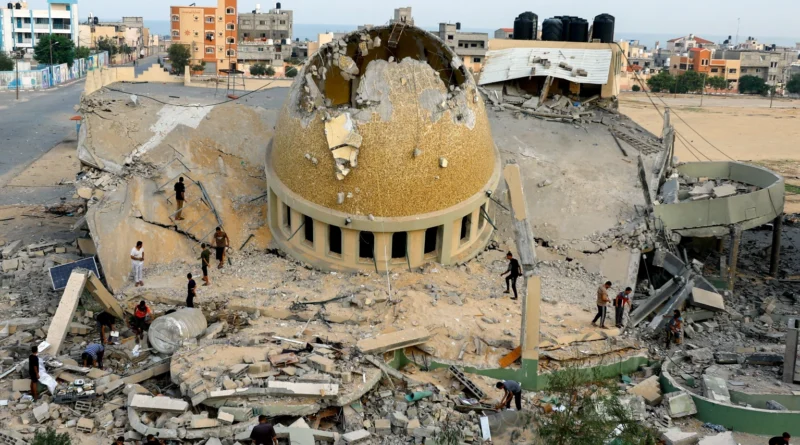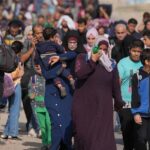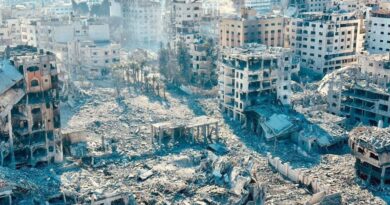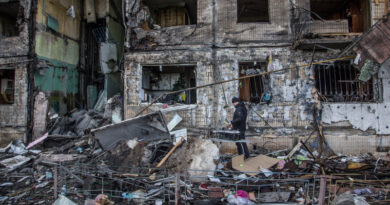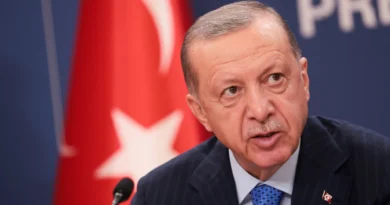Israel seeks the collapse of the Hamas government
EUGENIO GARCIA GASCON
Many wonder what exactly Israel is after in this war and how far it is willing to go. There may be no single definitive answer, and Benjamin Netanyahu may seek several things at the same time, including the expulsion of a considerable part of the Palestinian population from the Gaza Strip, which until now numbered 2,3 million. .
The confusion is general and does not exclude the Hebrew media, where these days everything has been read when it comes to interpreting Netanyahu's threat to change today's Middle East for a different one, a threat he launched on the second day of the war, that is, October 8, without being more explicit, although other politicians around him have reiterated it in the same vague terms.
The respected Yediot Ahronot analyst Ron ben Yishai published an article this Thursday in which he points out that the war cabinet chaired by Netanyahu has finally set an objective or mission for the military operation: the total collapse of the Hamas government in Gaza.
The most interesting thing about what Ben Yishai says is that what the Israeli executive wants is to end the Hamas government, that is, not Hamas, probably because the Israeli leaders know perfectly well that it is not possible to end the Islamic resistance movement. which was founded in 1987 giving rise to the first intifada.
But what specifically does it mean to end the Hamas government? For this to be possible, one of the following three things must happen: 1) that Israel expels the entire population of the Strip to Egypt. 2) That Israel expel all, or almost all, Hamas Gazans. 3) That Israel completely invades the Strip for a prolonged period of time and puts in charge an alternative puppet government to Hamas, like the one in the West Bank chaired by Mahmoud Abbas.
In the first case, certainly expelling the entire population of Gaza is surely the wet dream of more than one Israeli leader. On the second day of the war, Egypt said that it will not welcome a large mass of refugees, but that has not prevented systematic bombings from already pushing almost half a million people from the north to the south of the Strip. However, we are seeing that a large number of Palestinians are staying in the areas devastated by Israeli aircraft with American bombs. The Israeli Army asks them to go south, while Hamas asks them to stay even if their homes are destroyed. The Nakba of 1948 is in the collective memory and not all Palestinians are willing to leave their homes, not even the rubble of the places where they have lived, for a second time.
The second case, that is, Israel expelling all or almost all Gazans from Hamas, is an unworkable idea, unless the first case of expelling the entire population is fulfilled. In Gaza, Hamas has very large support that will undoubtedly grow substantially after the October 7 attack. It is not possible to easily identify and discriminate Hamas followers, who are legion and are everywhere and at all levels, from the top of the government to the lowest lumpen.
The third case, that Israel invades the Strip completely and puts a puppet government in charge, is an option that is too complex. If Israel does not invade the Strip, a government of this nature will not be able to be established, but if it invades and stays inside, there will be enormous resistance with a constant trickle of dead soldiers, since the resistance will not sit idly by. Furthermore, it is doubtful that a puppet government could maintain itself for long in Gaza, even with the presence of the Israeli Army. In the West Bank, where this situation exists with President Abbas, as time goes by it becomes more and more evident that he will not be able to sustain himself for much longer. Abbas turns 88 in November and his puppet government's days are numbered.
Furthermore, taking into account these three contexts, ending the Hamas government as Israel intends will not solve the problem, as the brutal blockade of the Strip for several decades has not solved it. In fact, we know that Israel neither has the capacity to end Hamas, nor the ability to end the idea of Hamas, and that it has only a dubious ability to end the Hamas government, regardless of the enormous destruction it may cause.
Eugenio Garcia Gascon has been a correspondent in Jerusalem for 29 years. He is a Cirilo Rodríguez journalism award winner.

